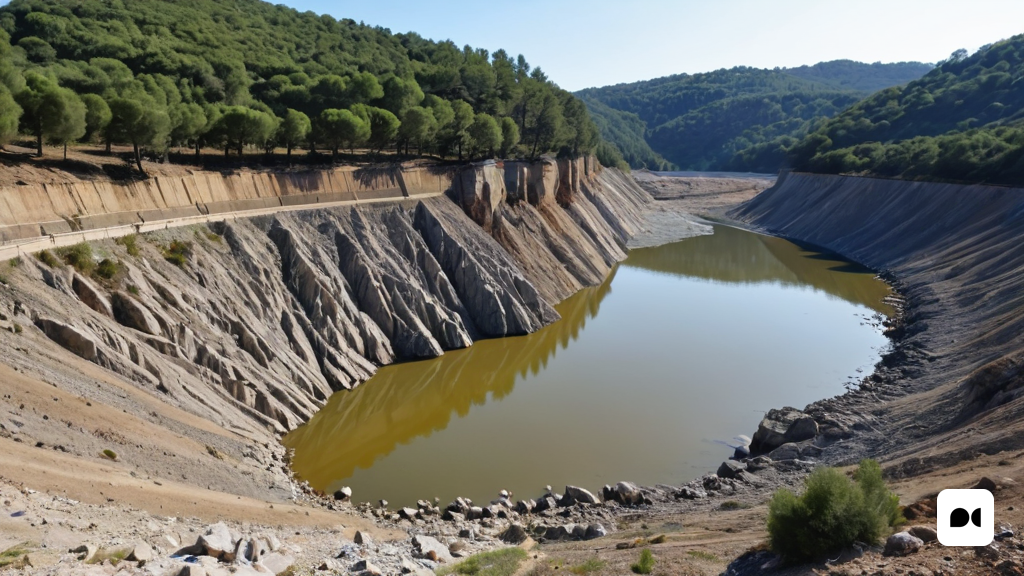Drought Relief
After weeks of uncertainty and emergency measures, Catalonia breathes a sigh of relief. Recent rains have filled the reservoirs of the Ter-Llobregat system up to 25%, a significant increase from the low of 15% recorded two months ago.
This increase has allowed the Catalan government to soften the restrictions imposed by the drought and lift the state of emergency, the most serious scenario contemplated in the Sequera Special Plan.
Flexible Restrictions
Starting on Monday, when the change is published in the Official Gazette of the Generalitat (DOGC), the scenario will go from emergency to exceptional.
This transition entails a series of changes in restrictions. The provision of water per inhabitant per day will increase from 200 to 230 liters.
In addition, restrictions on agricultural irrigation (from 80% to 40%), industrial consumption (from 25% to 15%) and livestock uses (from 50% to 30%) will be reduced.
Flexibility in Livestock
In the livestock sector, there is the possibility of making the reductions more flexible by presenting a water saving plan to the Catalan Water Agency.
Restrictions Maintained
Despite the relaxation, some restrictions remain. Water consumption in recreational uses is reduced by 15% in urban uses and 50% in irrigation.
The prohibition on watering gardens and public or private green areas continues, except for the survival irrigation of trees or plants by drip or watering can.
The prohibition on cleaning streets or buildings with drinking water, the cleaning of vehicles only in authorized establishments, and the prohibition on filling ornamental fountains are also maintained.
Swimming Pools: A Respite for Leisure
One of the most notable changes is the elimination of the need to declare public pools as climate refuges.
The filling or first filling of swimming pools for public and private use with water recirculation systems will be permitted, provided that the quantities essential to guarantee sanitary quality are used.
Exceptions and Limitations
This measure includes municipal, tourist, sports and community pools, as well as therapeutic pools in hospitals and special education centers.
The filling and filling of private pools intended for the bathing of people with recognized disabilities and behavioral disorders is also permitted.
Educational centers may partially or completely fill removable pools of less than 500 liters for children’s bathing.
However, private pools for individual or family use cannot be filled, nor those that do not have water recirculation systems.
Buffers and Ecological Flow
The Sequera Special Plan establishes limits that equal the consumption of a tourist to that of a citizen. In an exceptional situation, this limit is 115 liters per space, mandatory for municipalities that have exceeded their provision for three months.
In addition, we once again move from minimum emergency flows to environmental flows, ensuring the biodiversity of rivers and bodies of water.
Desalination Plants: A Contingency Plan
Despite the rains, the Climate Action advisor, David Mascort, has emphasized that the emergency works will continue.
12 desalination plants will be installed on the Costa Brava and a floating one will be located in front of the Port of Barcelona. Eight of the first will come into operation in June and the rest in autumn.
The Port of Barcelona desalination plant is scheduled for October and would come into operation if necessary.
Mascort has defended the continuity of these actions, since the future cannot be predicted and these tools may be needed.
Call for Savings and Electoral Disengagement
The counselor has called on the entire society to maintain water savings, ruling out a return to the emergency at least until the beginning of next year.
He highlighted that the water consumed from the reservoirs currently represents 50%, while a year ago it was 65%.
Regarding the Muga conca, Mascort has indicated that it is close to leaving emergency phase 2, but has not given any deadlines.
He has stated that the situation will be reviewed in the coming weeks and that a phase will not be lifted to return to it in fifteen days.
Mascort has separated the decision from the electoral cycle, stating that it has been taken based on the improvement of the reservoirs and the progress of emergency actions.
He has rejected suggestions that the decision is motivated by the elections, arguing that the rains have come when they have and that the Sequera Plan has been followed.

